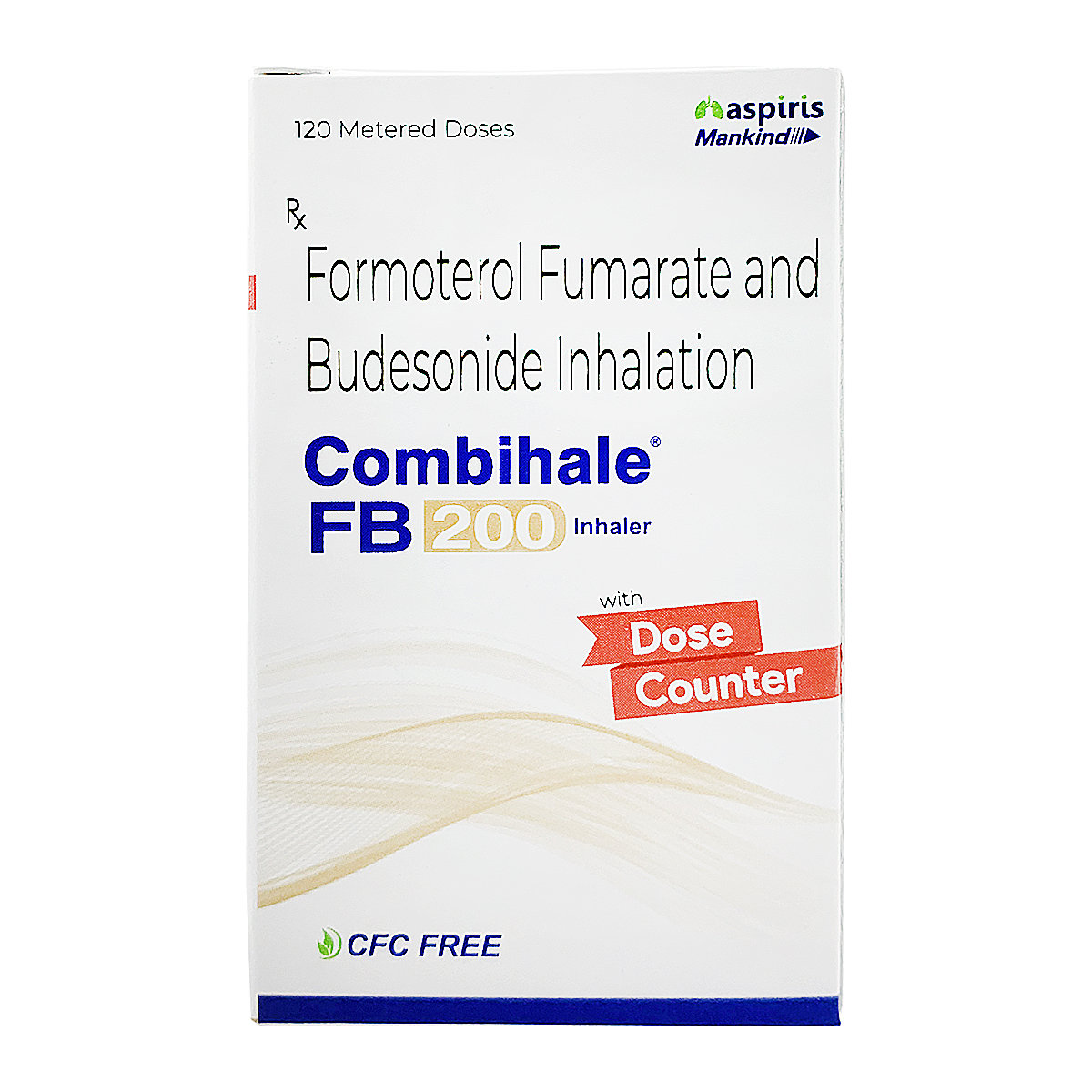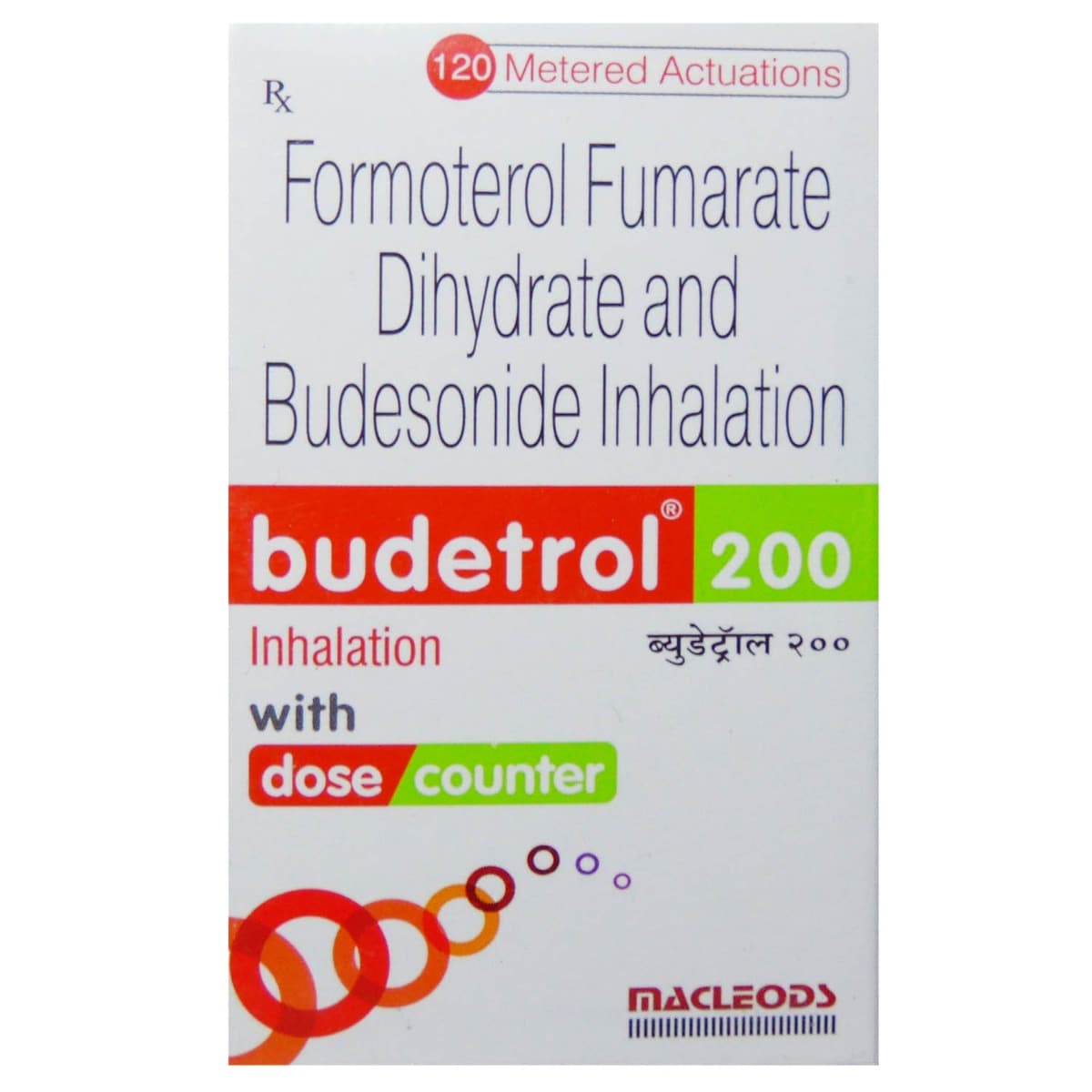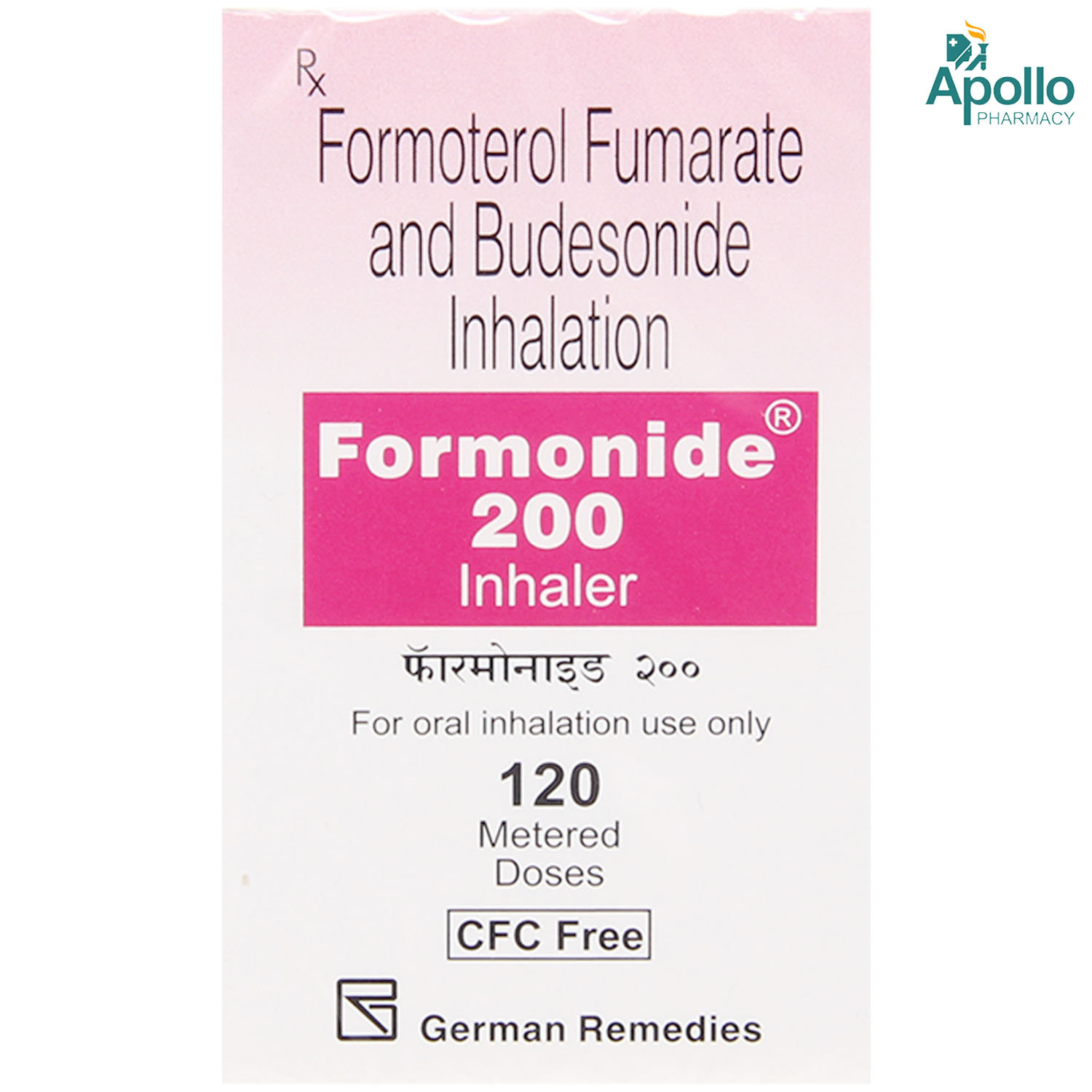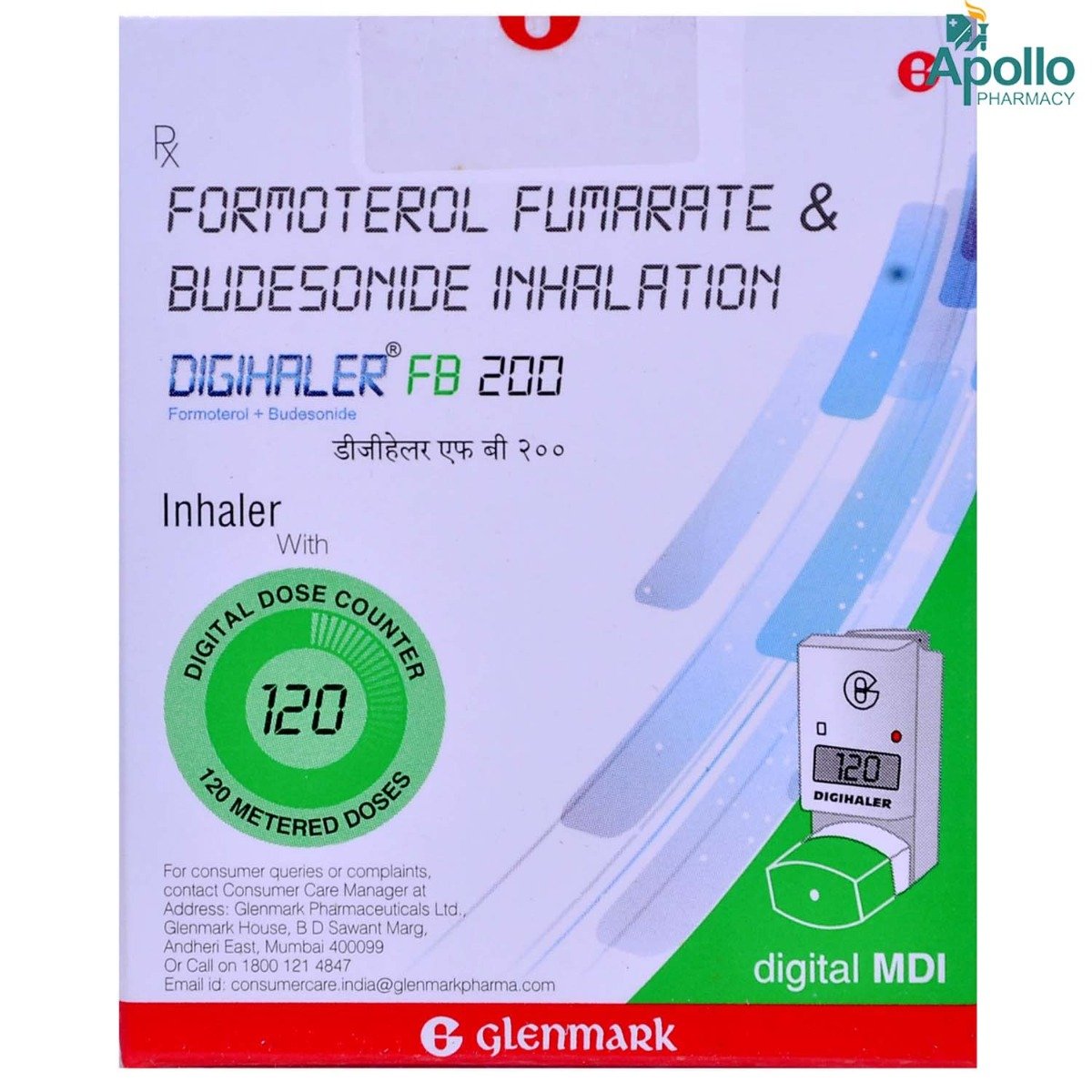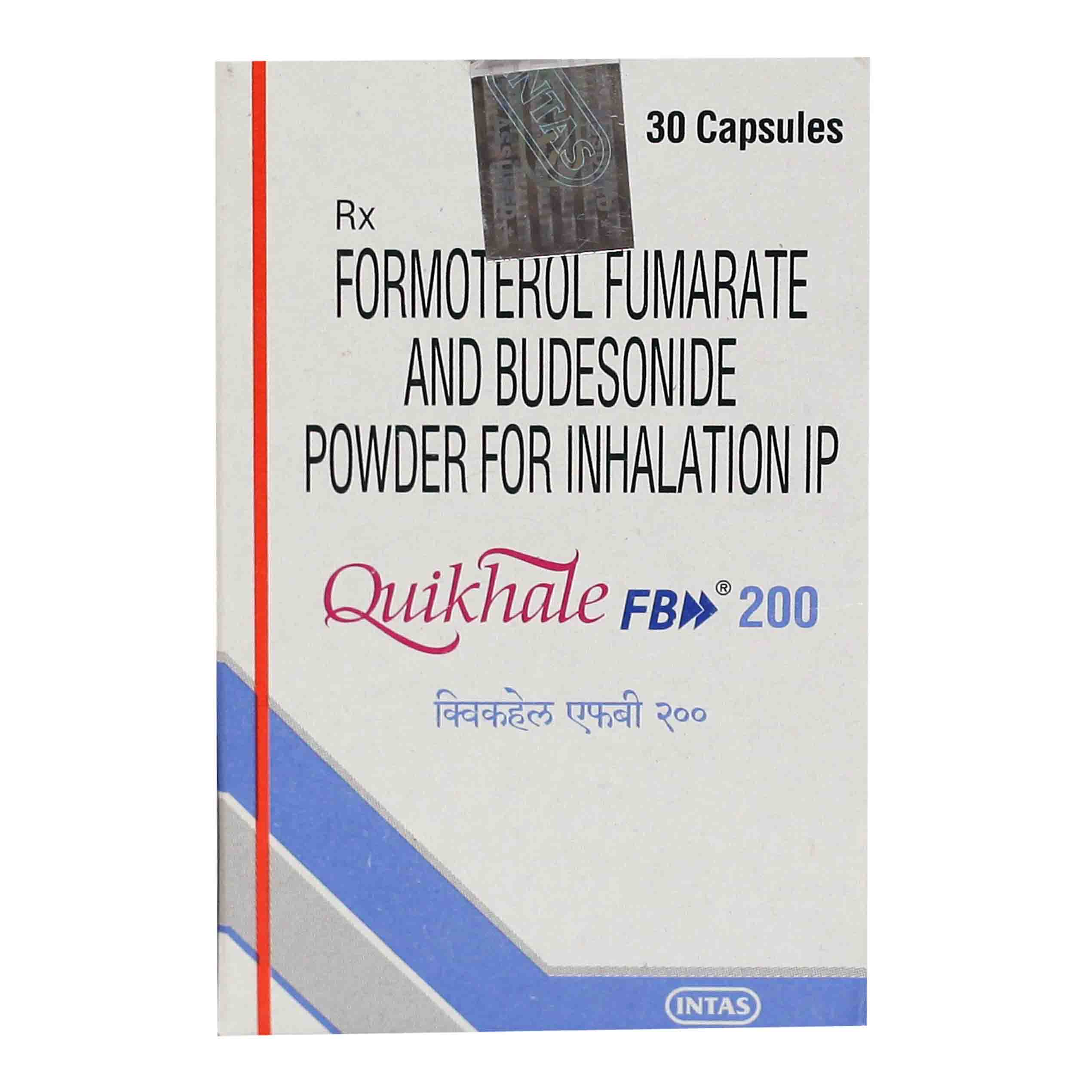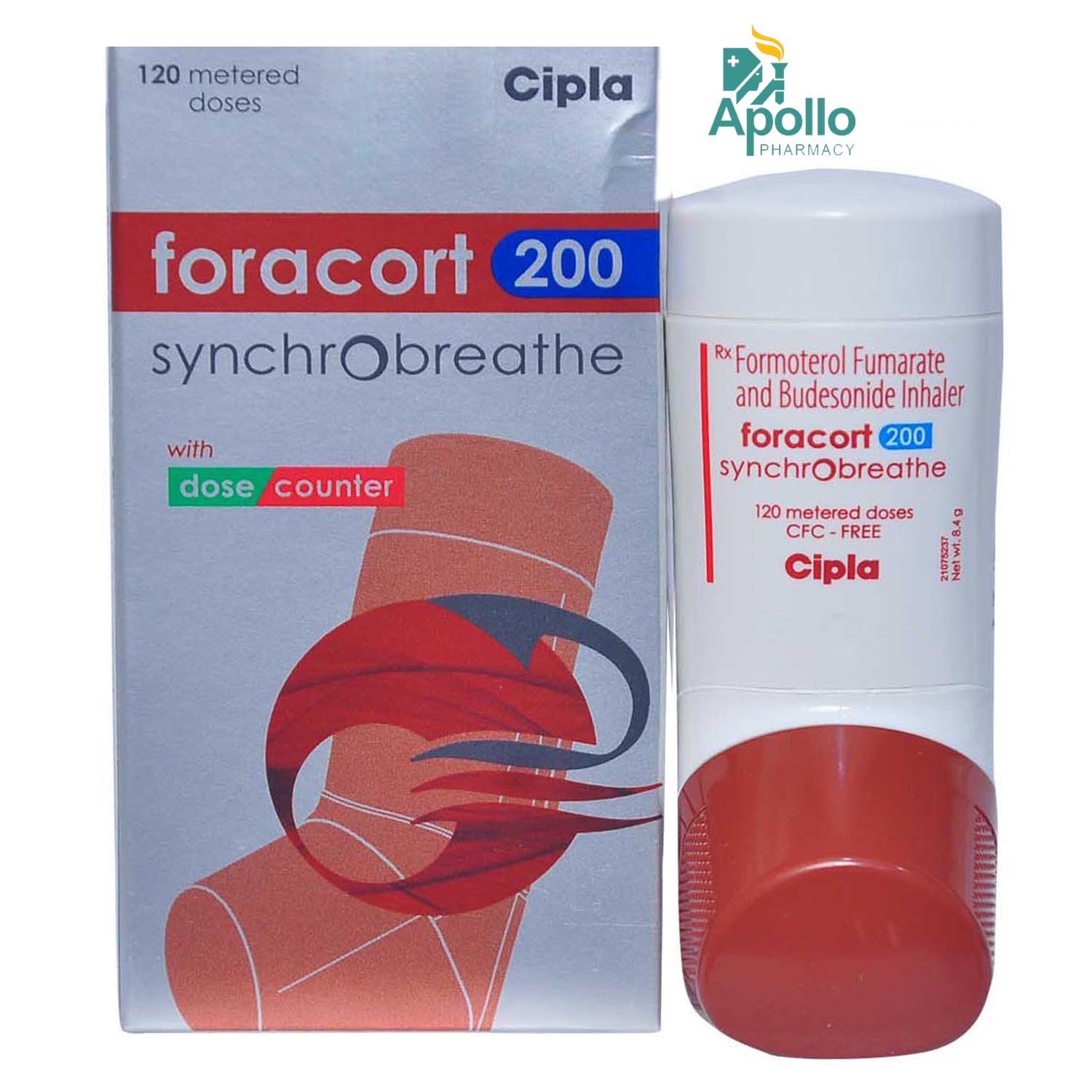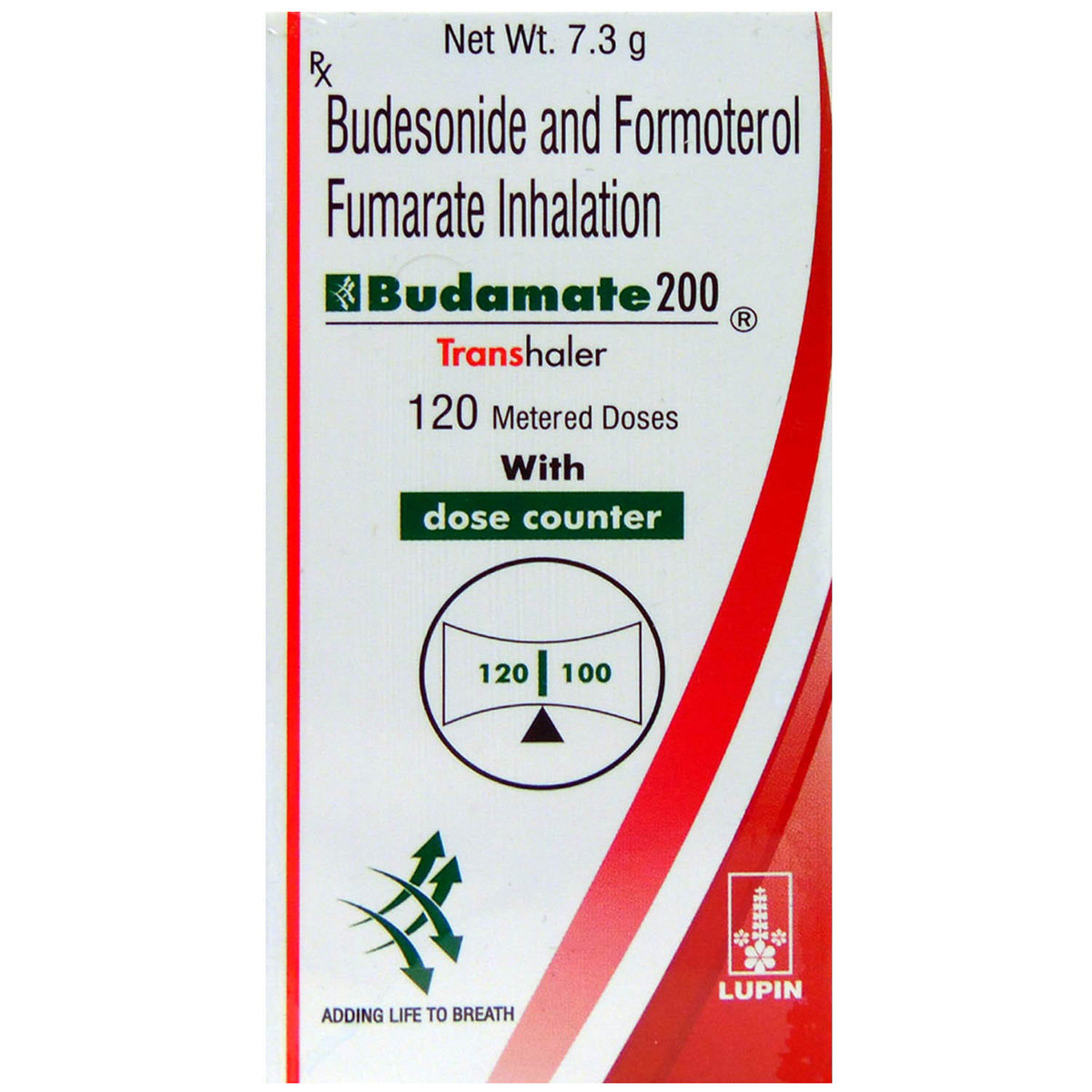- Home
- Peakhale FB 6 mcg/200 mcg Inhaler
Peakhale FB 6 mcg/200 mcg Inhaler Substitute
Peakhale FB 6 mcg/200 mcg Inhaler Substitute
Medicine Composition:
BUDESONIDE-200MCG + FORMOTEROL-6MCGAll Substitutes & Brand Comparisons
RX
Out of StockAirtec Fb 200 mcg Inhalation 150 mdi
Glenmark Pharmaceuticals Ltd
₹129
(₹0.77/ 1MDI)
65% CHEAPERRX
Combihale FB 200 Inhaler 1's
Mankind Pharma Pvt Ltd
₹372.5
(₹2.79 per unit)
25% COSTLIERRX
Foraprl 200 Inhaler 120 mdi
Pristine Pearl Pharma Pvt Ltd
₹372
(₹2.79/ 1MDI)
25% COSTLIERRX
Foraprl 200 Inhaler With Dose Counter 120 MDI
Pristine Pearl Pharma Pvt Ltd
₹372
(₹2.79/ 1MDI)
25% COSTLIERRX
Budefine 200 Inhaler 120 mdi
Prevego Healthcare & Research Pvt Ltd
₹372
(₹2.79/ 1MDI)
25% COSTLIERRX
Budetrol 200 Inhaler 120 mdi
Macleods Pharmaceuticals Ltd
₹376
(₹2.82/ 1MDI)
27% COSTLIERRX
Formonide 200 Inhaler 120 mdi
Zydus Healthcare Ltd
₹379
(₹2.84/ 1MDI)
27% COSTLIERRX
Digihaler FB 200 Inhaler
Glenmark Pharmaceuticals Ltd
₹379
(₹2.84/ 1MDI)
27% COSTLIERRX
Fomtide 6mcg/200mcg Inhaler
Sun Pharmaceutical Industries Ltd
₹379
(₹2.84/ 1MDI)
27% COSTLIERRX
Quikhale FB 200 Inhalar 120 mdi
Intas Pharmaceuticals Ltd
₹379
(₹2.84/ 1MDI)
27% COSTLIERRX
Budevin-F 200 Inhaler 120 MDI
Divine Savior Pvt Ltd
₹379
(₹2.84/ 1MDI)
27% COSTLIERRX
Forahaler-200 Inhaler 120 MDI
Sanatra Healthcare Ltd
₹378.5
(₹2.84/ 1MDI)
27% COSTLIERRX
Unipuff FB 200 Inhaler 120 mdi
Uniza Healthcare Llp
₹419
(₹3.14/ 1MDI)
41% COSTLIERRX
Foracort 200 Synchrobreathe Inhaler
Cipla Ltd
₹467.5
(₹3.51/ 1MDI)
58% COSTLIERRX
Budamate 200 Transhaler 120 mdi
Lupin Ltd
₹375.5
(₹46.3/ 1gm)
1985% COSTLIER

When Should You Consider Switching from Peakhale FB 6 mcg/200 mcg Inhaler?
Patients may explore substitutes in the following scenarios:
- High monthly cost of Peakhale FB 6 mcg/200 mcg Inhaler
- Non-availability in local pharmacies
- Generic recommendation by a doctor
- Side effects or better tolerability with alternatives
What to Know Before Switching
Before you switch from Peakhale FB 6 mcg/200 mcg Inhaler to another medicine, here are some important points to keep in mind:
Same salt, different brands:
Most substitutes contain the same active ingredient - BUDESONIDE-200MCG + FORMOTEROL-6MCG, but the fillers, coating, or manufacturing quality may vary slightly.
Consult your doctor first:
Even if the salt is the same, your doctor can confirm if the substitute is right for your condition, dosage, and health history.
Watch out for allergies or reactions:
Some people may react differently to certain brands due to inactive ingredients. If you notice any side effects, inform your doctor immediately.
Price ≠ effectiveness:
A lower-priced substitute doesn't mean it's less effective. Many generic medicines work just as well as branded ones.
Check the dosage form and strength:
Always match the substitute’s strength (e.g., 5mg, 10mg) and form (tablet, capsule, syrup) with what your doctor prescribed.
Uses
Peakhale FB 6 mcg/200 mcg Inhaler is used in the treatment of Asthma and Chronic Obstructive Pulmonary Disease (COPD). The detailed uses of Peakhale FB 6 mcg/200 mcg Inhaler are as follows:
- Asthma management: Peakhale FB 6 mcg/200 mcg Inhaler is widely prescribed for asthma patients to reduce inflammation and prevent asthma attacks. It works by relaxing airway muscles, easing breathing and providing effective relief.
- COPD treatment: Peakhale FB 6 mcg/200 mcg Inhaler is highly effective in managing chronic obstructive pulmonary disease (COPD), a progressive lung condition. It helps alleviate symptoms like breathlessness and wheezing, ensuring better respiratory function.
- Maintenance therapy: It is used as regular maintenance therapy and as needed in response to symptoms.
Medicinal Benefits
- Peakhale FB 6 mcg/200 mcg Inhaler is a combination inhalation therapy that contains Budesonide (an inhaled corticosteroid) and Formoterol (a long-acting beta-2 adrenergic agonist).
- This combination offers both anti-inflammatory and bronchodilator actions, providing comprehensive control over respiratory conditions such as Asthma and Chronic Obstructive Pulmonary Disease (COPD).
- Budesonide reduces airway inflammation, while Formoterol helps to relax the airway muscles, leading to improved airflow and reduced breathlessness.
- Peakhale FB 6 mcg/200 mcg Inhaler is used as a regular maintenance therapy for individuals with asthma where the use of inhaled corticosteroids and long-acting beta-agonists (LABA) is appropriate.
- It reduces airway inflammation and prevents bronchospasm, thereby minimising the frequency and severity of asthma attacks.
- Helps maintain long-term asthma control, improves lung function, and enhances quality of life.
- Peakhale FB 6 mcg/200 mcg Inhaler is also indicated for the regular treatment of moderate to severe COPD in patients who experience frequent symptoms and have a history of exacerbation.
- Peakhale FB 6 mcg/200 mcg Inhaler decreases the rate and severity of COPD exacerbations and maintains day-to-day function.
FAQs
The substitutes of Peakhale FB 6 mcg/200 mcg Inhaler contain the same active salt(s) - BUDESONIDE-200MCG + FORMOTEROL-6MCG. However, they may differ in price, manufacturing quality, and inactive ingredients. Speak to your doctor to find a suitable option.
Switching to a generic substitute medicine in the place of Peakhale FB 6 mcg/200 mcg Inhaler is often possible if it has the same salt, strength, and dosage form. But always check with your doctor before making any changes to your medication.
Generics versions of Peakhale FB 6 mcg/200 mcg Inhaler are typically more affordable because they don’t include the original brand's research, development, and marketing costs. They contain the same active ingredient and are approved for safety and effectiveness.
Most people don’t notice any difference. However, some may react to different fillers or coatings. If you notice any unusual symptoms after switching, consult your doctor.
Make sure the new medicine has the same active salt, strength, dosage form. Always confirm the change with your doctor or pharmacist.
Substitutes of Peakhale FB 6 mcg/200 mcg Inhaler meet the same safety and efficacy standards as Peakhale FB 6 mcg/200 mcg Inhaler, but small differences in absorption or formulation can exist. A doctor can help you choose the right one for your needs.
Yes. Substitutes of Peakhale FB 6 mcg/200 mcg Inhaler may vary in color, size, or shape due to differences in manufacturing and branding, but this does not affect how they work.
Yes, it’s generally safe to switch between multiple substitutes of Peakhale FB 6 mcg/200 mcg Inhaler if they have the same salt and strength. However, always inform your doctor so they can monitor how your body responds.
Yes, many people safely use substitutes of Peakhale FB 6 mcg/200 mcg Inhaler for long-term treatment. Just ensure it’s done under medical supervision.
If your symptoms stay under control or lab results remain stable, the substitute for Peakhale FB 6 mcg/200 mcg Inhaler is likely working well. Regular follow-ups with your doctor are important.
Absolutely. Even with the same salt, small differences can affect how your body responds when switching from Peakhale FB 6 mcg/200 mcg Inhaler to its substitute. Always consult your doctor before switching.
Peakhale FB 6 mcg/200 mcg Inhaler is used to treat asthma and chronic obstructive pulmonary disease (COPD).
Yes, Peakhale FB 6 mcg/200 mcg Inhaler may cause fungal infection in the mouth (oral thrush) as a common side effect. It is not necessary for everyone taking Peakhale FB 6 mcg/200 mcg Inhaler to experience this side effect. However, to avoid such side effects, brush your teeth or rinse your mouth with water after using Peakhale FB 6 mcg/200 mcg Inhaler every time.
Peakhale FB 6 mcg/200 mcg Inhaler should be used with caution in osteoporosis (low bone density resulting in weak and brittle bones) patients, as it may worsen the condition. Therefore, inform your doctor if you have osteoporosis before taking Peakhale FB 6 mcg/200 mcg Inhaler so that the dose may be adjusted or an alternate medicine may be prescribed.
No, you are not recommended to take ketoconazole or other antifungal drugs such as itraconazole, posaconazole and voriconazole with Peakhale FB 6 mcg/200 mcg Inhaler as co-administration of these medicines may increase the absorption of Peakhale FB 6 mcg/200 mcg Inhaler into the bloodstream and increase the risk of adverse effects such as high blood pressure, weight gain, depression, muscle weakness, swelling, acne, skin thinning, cataracts, excessive growth of facial or body hair, stretch marks, high blood glucose levels, menstrual irregularities, loss of bone density, easy bruising and abnormal distribution of body fat, especially in the waist, back, neck and face, neck. However, please consult a doctor before using other medicines with Peakhale FB 6 mcg/200 mcg Inhaler.
You are not recommended to take more than the prescribed dose of Peakhale FB 6 mcg/200 mcg Inhaler as it may cause adverse effects such as a fast heartbeat, trembling or headache. However, if you experience any of these symptoms while taking Peakhale FB 6 mcg/200 mcg Inhaler, please consult a doctor immediately.
You are not recommended to stop taking Peakhale FB 6 mcg/200 mcg Inhaler without consulting your doctor, as it may worsen the condition or cause recurring symptoms. Therefore, take Peakhale FB 6 mcg/200 mcg Inhaler for as long as your doctor has prescribed it, and if you experience any difficulty while taking Peakhale FB 6 mcg/200 mcg Inhaler, please consult your doctor.
Peakhale FB 6 mcg/200 mcg Inhaler does not relieve a sudden asthma attack. Therefore, it is advised to carry a rescue inhaler always to treat sudden asthma symptoms.
Throat irritation or pain, oral thrush (fungal infection), respiratory tract infections, low potassium level and sinusitis (sinus inflammation) are some of the common side effects of Peakhale FB 6 mcg/200 mcg Inhaler, which might occur in some patients.
In rare cases, Peakhale FB 6 mcg/200 mcg Inhaler may cause a low potassium level. So if you experience tiredness, muscle cramps, weakness, abnormal heart rhythms (arrhythmias) and constipation, contact a doctor for advice.
People with heart problems (including high blood pressure, chest pain, fast heartbeat, fits (seizures), thyroid problems, diabetes, immune system problems, weak bones or osteoporosis, eye problems (glaucoma, cataracts) and liver problems should consult a doctor before using Peakhale FB 6 mcg/200 mcg Inhaler.
Yes, Peakhale FB 6 mcg/200 mcg Inhaler is a combination of two drugs: Budesonide (a corticosteroid) and Formoterol (LABA—long-acting beta-agonists or bronchodilators).
No, taking more than the prescribed dose may not be more effective; it may raise the possibility of experiencing severe adverse reactions.
Rinse your mouth with water after each dose to help prevent infection. Do not swallow the water after rinsing.
Before taking the Peakhale FB 6 mcg/200 mcg Inhaler, let your doctor know about all your medical conditions, sensitivities, and all the medications you are using. And inform your doctor if you are pregnant, planning to become pregnant, or breastfeeding.
You may start to feel better after a couple of weeks. But it can take a month or more to work fully.
It's possible that your immune system is not strong enough to receive a live vaccine while you're taking Peakhale FB 6 mcg/200 mcg Inhaler. If you need vaccinations, inform the healthcare professional that you're taking Peakhale FB 6 mcg/200 mcg Inhaler.
It depends on your health condition. As directed by your physician, you will need to use it for longer to keep symptoms under control.
The safety of Peakhale FB 6 mcg/200 mcg Inhaler in pregnant women is unknown. Therefore, it is given to pregnant women only if the doctor thinks the benefits outweigh the risks.
Store it at room temperature and away from sunlight, excess heat and moisture (not in the bathroom). Please dispose of the inhaler three months after you remove it from the foil overwrap or when the dose indicator reads 0), whichever comes first.
Asthma is a chronic (long-term) respiratory condition in which airways narrow, swell, and produce extra mucus, leading to difficulty breathing. Symptoms include wheezing (a whistling sound while breathing), shortness of breath, chest tightness, and cough, especially at night.


